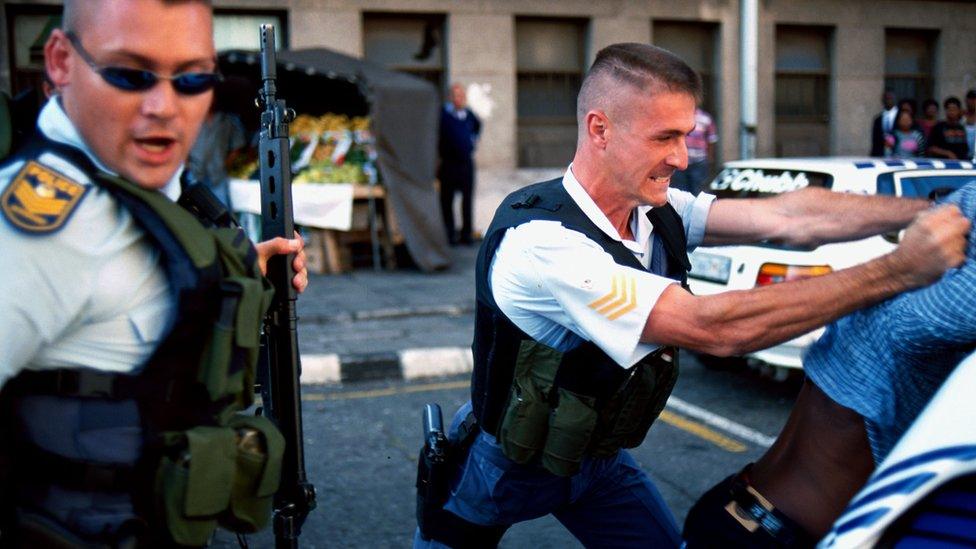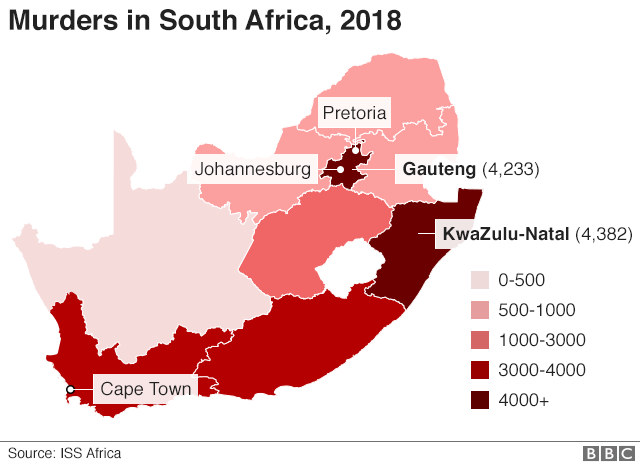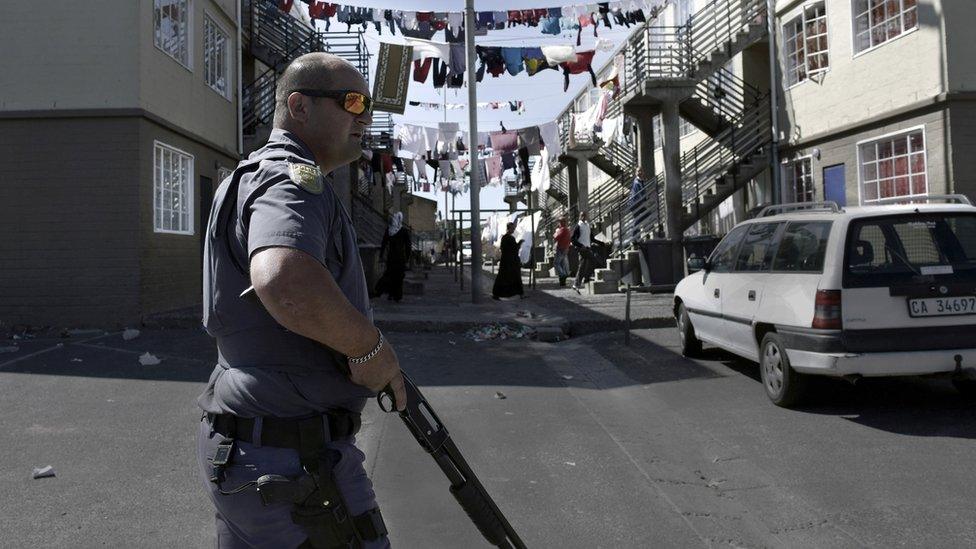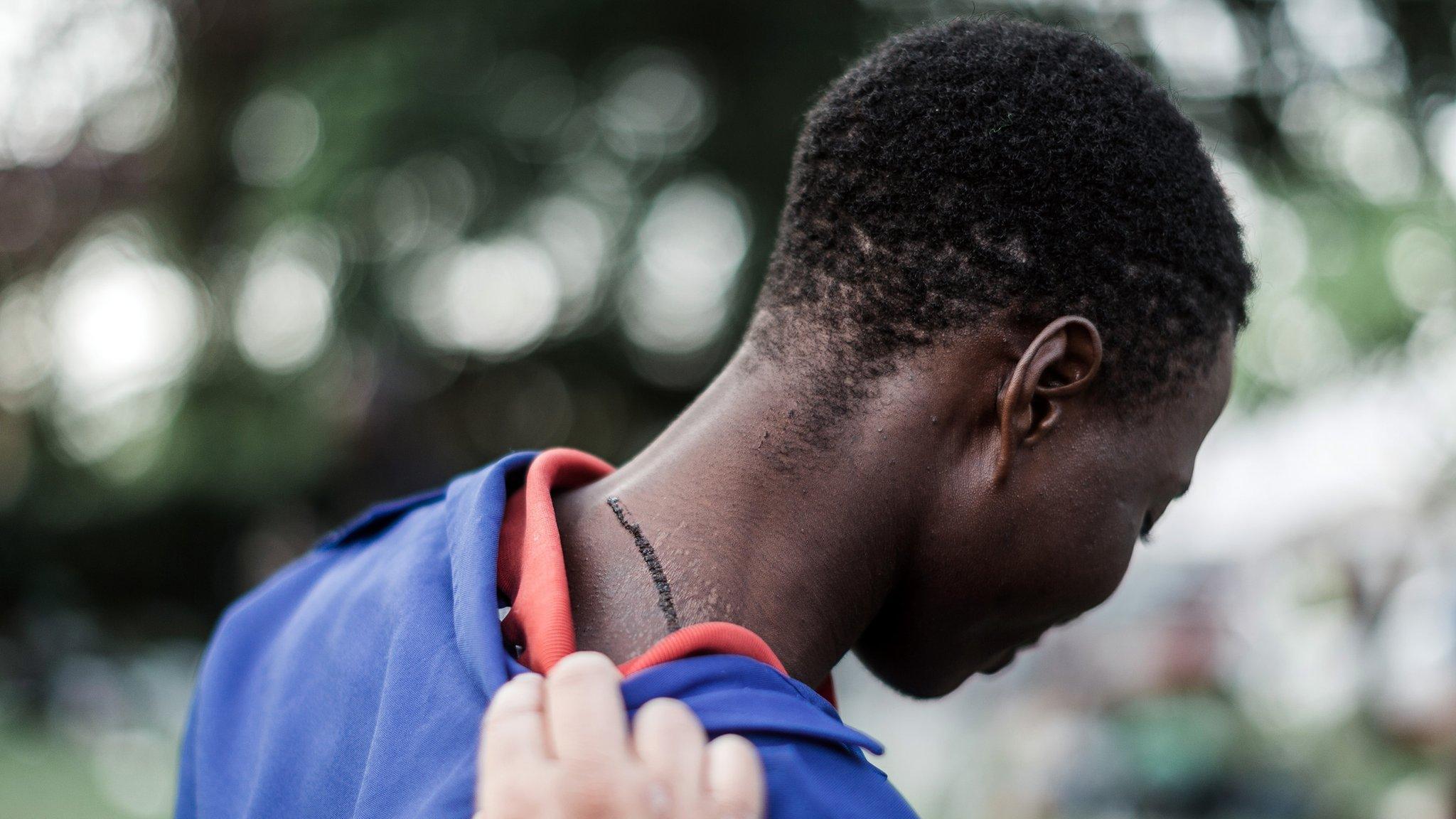South Africa elections: Are crime rates rising?
- Published

Police officers in Johannesburg make an arrest
South Africa is a country notorious for high levels of crime.
All the main parties agree it is a problem.
The governing ANC - in power since 1994 - is frank about the situation.
Its manifesto - published ahead of the general election on 8 May - says that drugs, violence and gang activity "are wreaking havoc in many communities".
"Gender-based violence has reached crisis proportions," it also states.
In its manifesto for the last election in 2014, the ANC had promised: "We will work to further reduce levels of crime, specifically contact crime like murder, rape and grievous bodily harm."
So has any progress been made since then?
Is crime getting worse?
Since 2014, official data shows a general decrease in all crime - with a slight uptick in the most recent year.
This is from the Victims of Crime Survey, based on extensive interviews carried out annually by the government's statistics authority.

This is the case with both household crime, which includes burglary and vehicle theft, and individual crime - violent and non-violent crime experienced by a person such as robbery and sexual assault.
But what about most the serious crimes like murder?
South Africa had the fifth highest murder rate in the world in 2015, according to data compiled by the UN.
Since the last election, the number of murders has continued to rise each year.

Murder rates are regarded as a reliable, well-documented crime statistic.
There were just over 20,300 murders last year, over 3,000 more than in 2014.
An upward trend began in 2012 and last year had the highest number in 15 years.
Also, there has been a drop in the number of murder cases solved or concluded because there was no case to answer.

Analysts say there has been a fall in the effectiveness of the police - despite an increase in funding.
"The capacity of the police has declined dramatically," says Gareth Newham, crime expert at the Institute for Security Studies (ISS Africa). , external
Corruption has weakened the country's crime-fighting capacity, a government-initiated commission of inquiry heard in April this year.
The ANC says it is cracking down on what is called "state capture," attempts by private interests to influence public institutions in their favour.
Where is murder worst?
Incidences of murder vary across South Africa's nine provinces, and the factors driving killings can be heavily localised.

Gauteng and KwaZulu-Natal, the most populous regions, both have the highest number of murders.
These regions have cities with areas that are prone to crime because of high levels of poverty and inadequate policing.

Armed police in Cape Town
The South African Cities Network, an organisation that promotes urban development, published a report this year showing that murder is more prevalent in the country's cities, with Cape Town being the worst.
Their report notes gang violence and the supply of illegal arms as being factors in the rising murder rate.
What about sex crimes?
In early 2019, South African President Cyril Ramaphosa called rape and sexual assault in the country a "national crisis".
The official numbers we have show that reported rapes were at just over 40,000 in 2018.
That is down from when the ANC won in 2014 election, but the number of cases has gone up from 2017.

But rape statistics are often considered unreliable.
It is difficult to know the true extent because for a variety of reasons, many rapes go unreported.
Grievous bodily harm has steadily decreased since the last election, following a long-term trend in previous years.
But these figures could likewise underestimate the true extent, as victims of assault will not always report it to the police.


- Published2 October 2019
